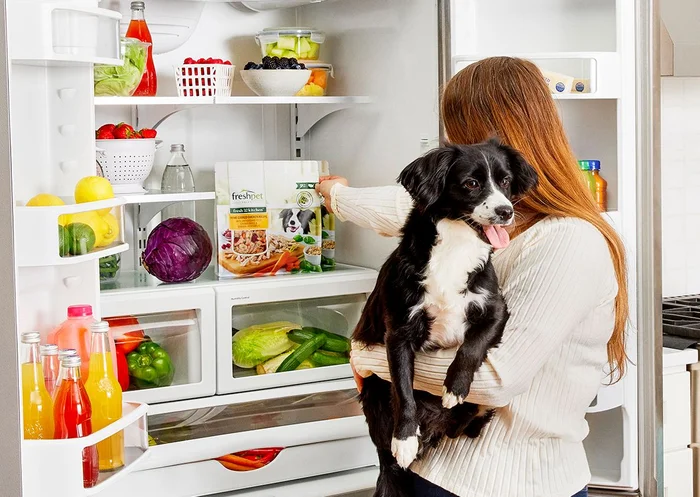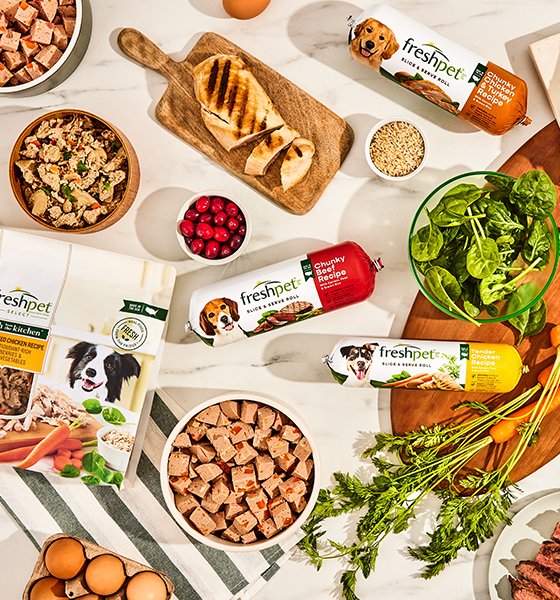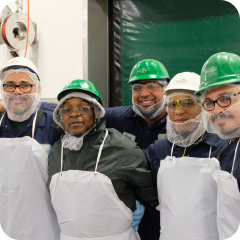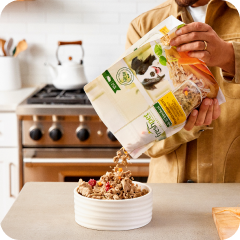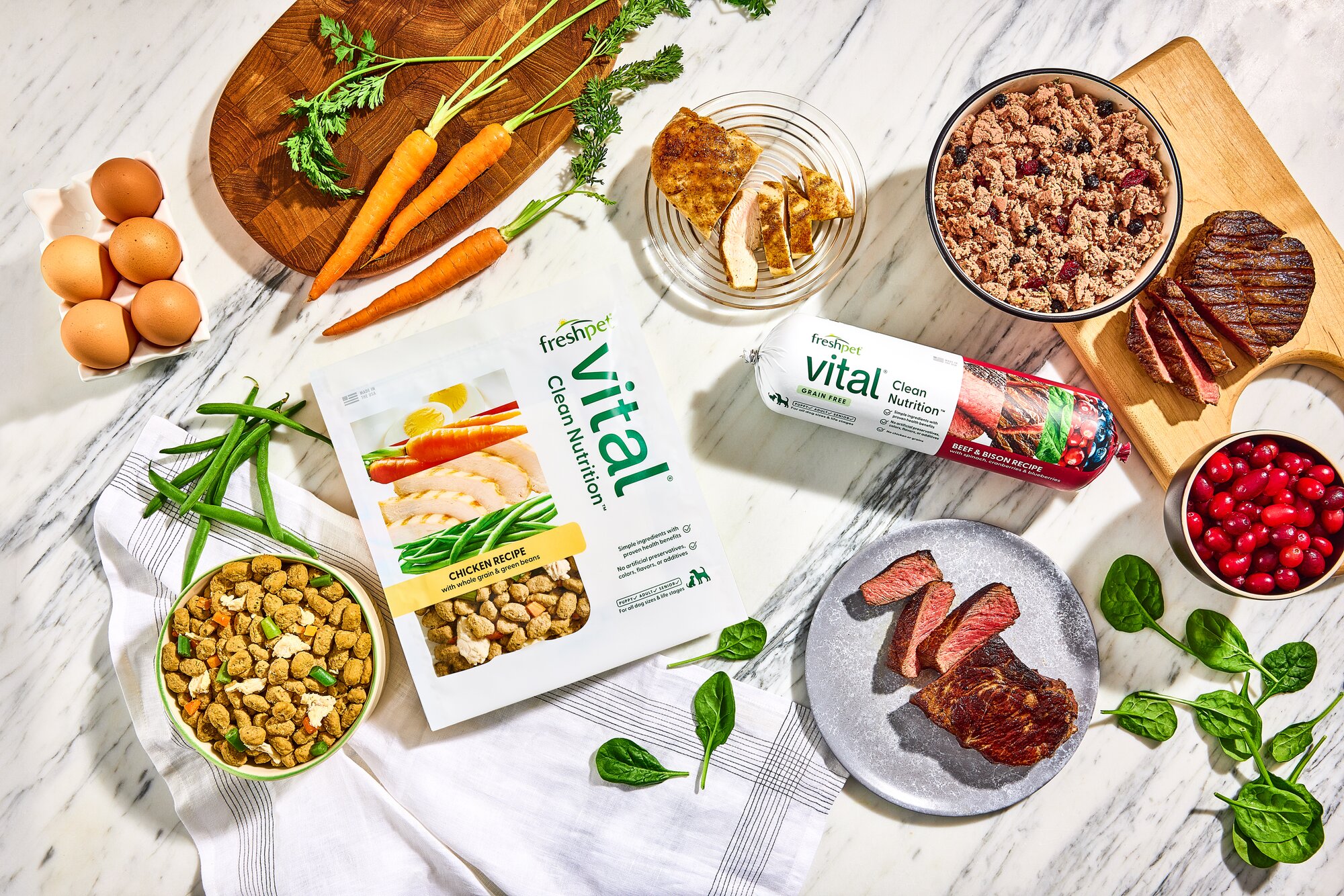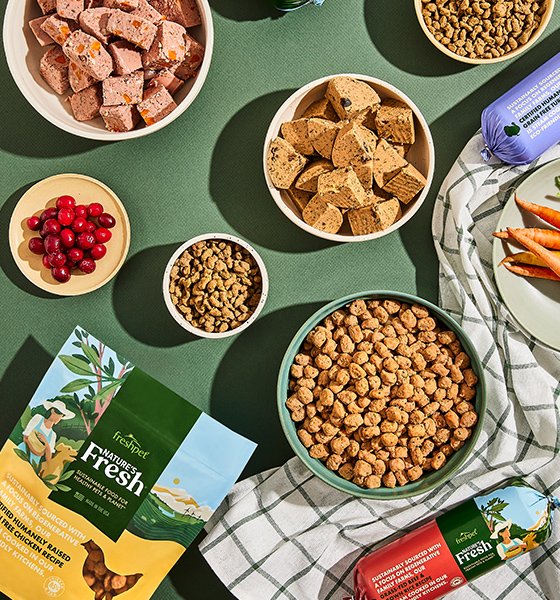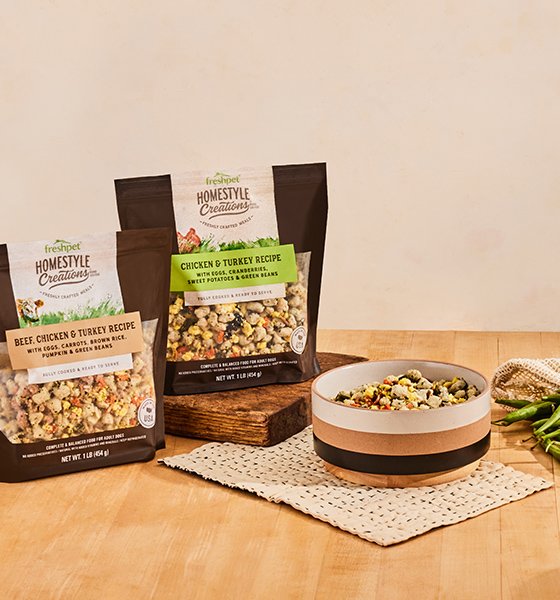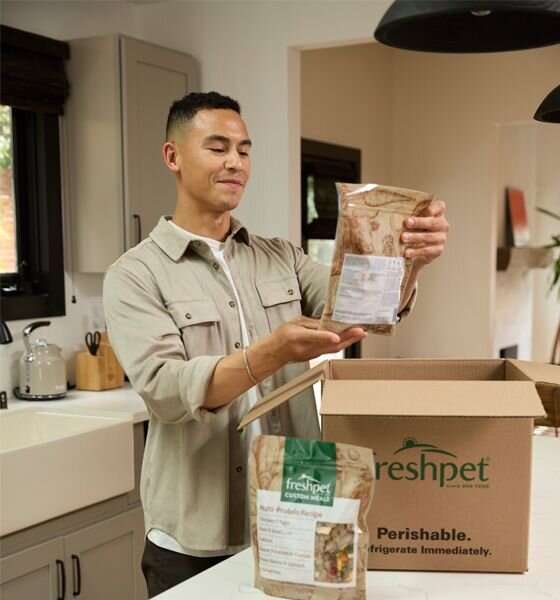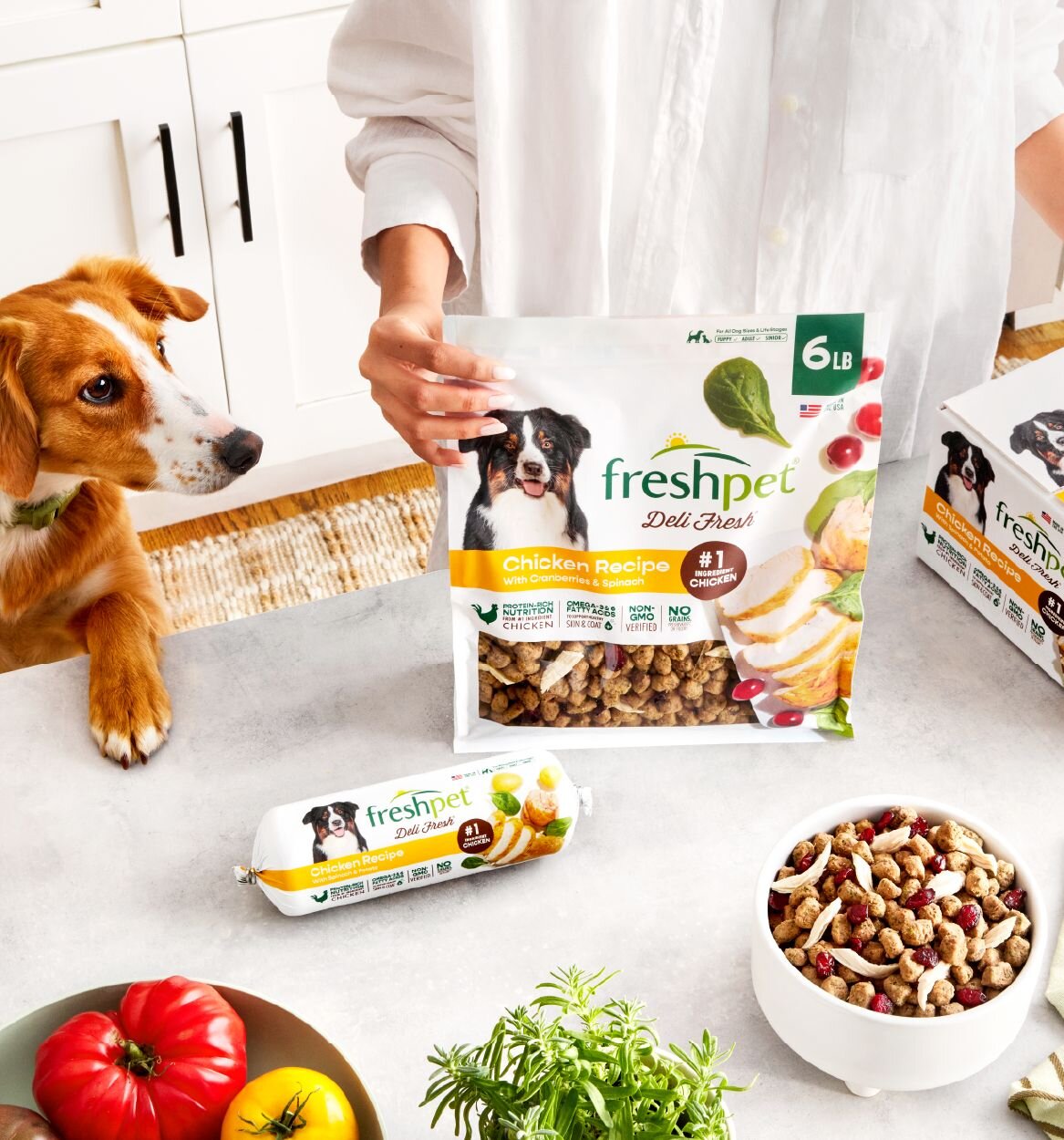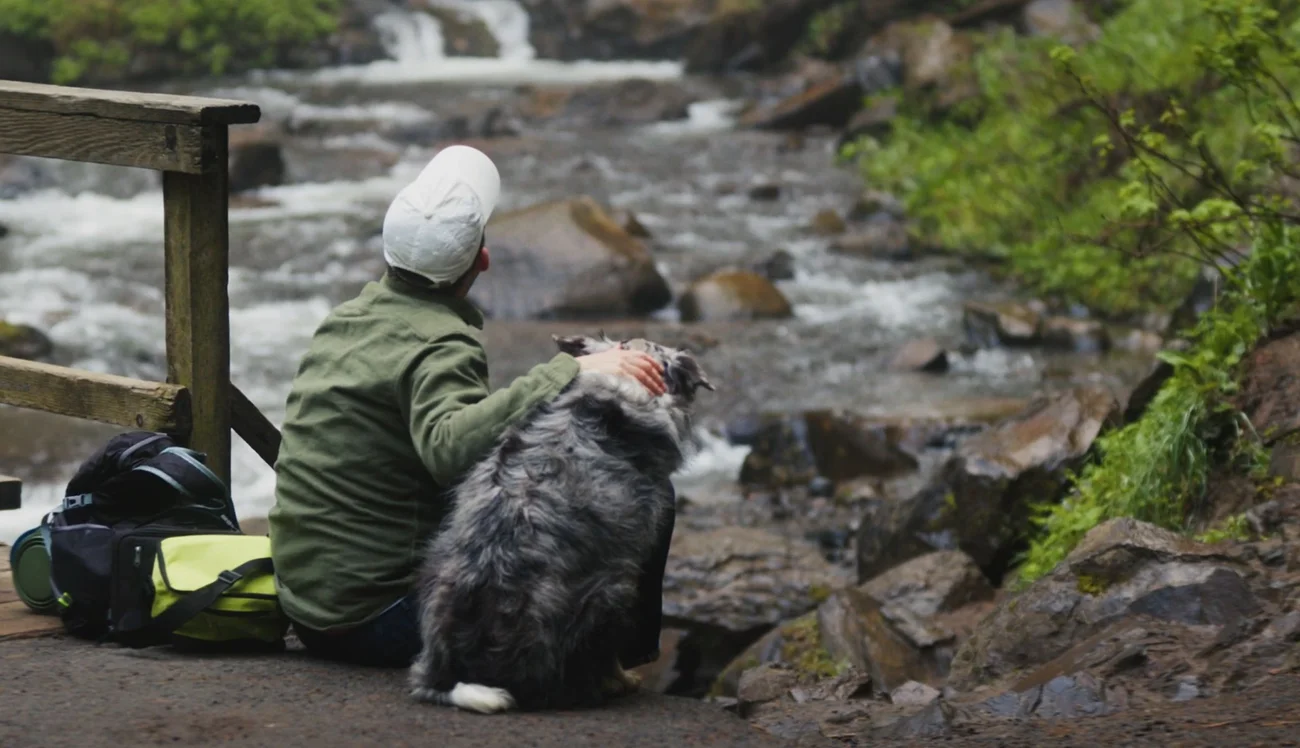
all recipes from our landfill-free kitchens are thoughtfully produced to conserve natural resources
Estimated impact of Freshpet’s sustainability initiatives in 2024.
Metric tons of CO2e emissions prevented from cardboard recycling
Gallons of water saved from cardboard recycling
Trees saved from cardboard recycling
Metric tons of CO2e emissions prevented from our renewable energy commitment
Pounds of chicken raised without antibiotics, preventing an estimated 6,436 lbs of antibiotics entering the environment
Pounds of ocean-bound plastic removed from the environment due to our Plastic Neutral partnership with rePurpose Global
there’s no such thing as “waste” water
All Freshpet's wastewater is filtered by our on-site treatment facilities, which remove residual vegetables, meat and fat from cooking. These systems reduce our burden on the local waste treatment facility and help minimize our carbon footprint by disposing the organic waste via anaerobic digestion rather than landfilling. Our Kitchen in Ennis, TX cleans its wastewater so thoroughly that it can be re-used in the cooling system. This will save up to 50 million gallons of water per year.

irrigating with rain water
We harvest rainwater at our Kitchens in Bethlehem, PA to irrigate our landscape, including the trees we’ve planted. Our underground reservoirs hold almost half a million gallons of which is used to irrigate 62,000 sq. ft of landscaping.
reducing stormwater runoff
Harvesting rainwater helps reduce storm water runoff from our property. This lightens peak flow loads to local waters, and helps avoid streambank erosion.
less contamination
Reduced runoff means less surface water contamination from pesticides, sediment, metals, and fertilizers.
we’re committed to using renewable energy
The Kitchens where our food is made, and the fridges where you find it, use electricity generated by renewable wind or solar energy. That’s helping reduce our CO2 footprint and achieve our goal of carbon neutrality.
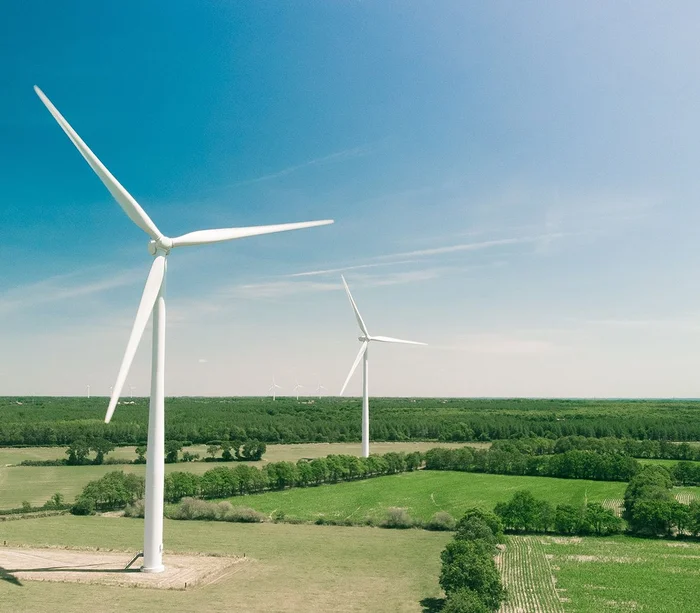
clean wind energy
Freshpet purchased 94,907 MWh of renewable electricity in 2023. This reduces our carbon footprint and supports a more sustainable electric grid.
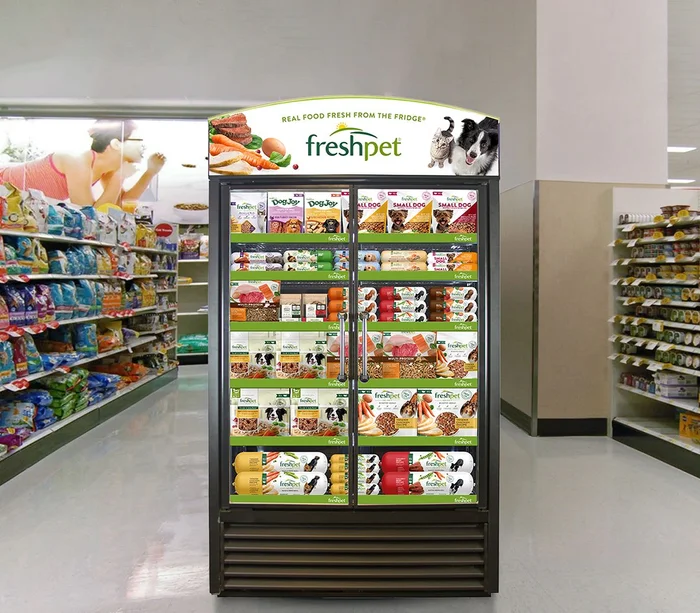
energy efficient fridges
Our Freshpet chillers use the latest technology including LED lighting, highly efficient compressors, and non-ozone depleting refrigerant. As a result they use less electricity than a 100 watt lightbulb and up to 91% less energy than our older chillers.
freshpet’s head of sustainability

Justin Joyner
Sustainability Lead
sourcing ingredients with care
We strongly support the local farmers close to our Freshpet Kitchens whose labor and environmental practices align with ours. Locally sourcing our fresh ingredients also helps contribute to the well-being of our community, uses less transportation, and makes less waste. What’s good for our neighbors is good for our world, too.
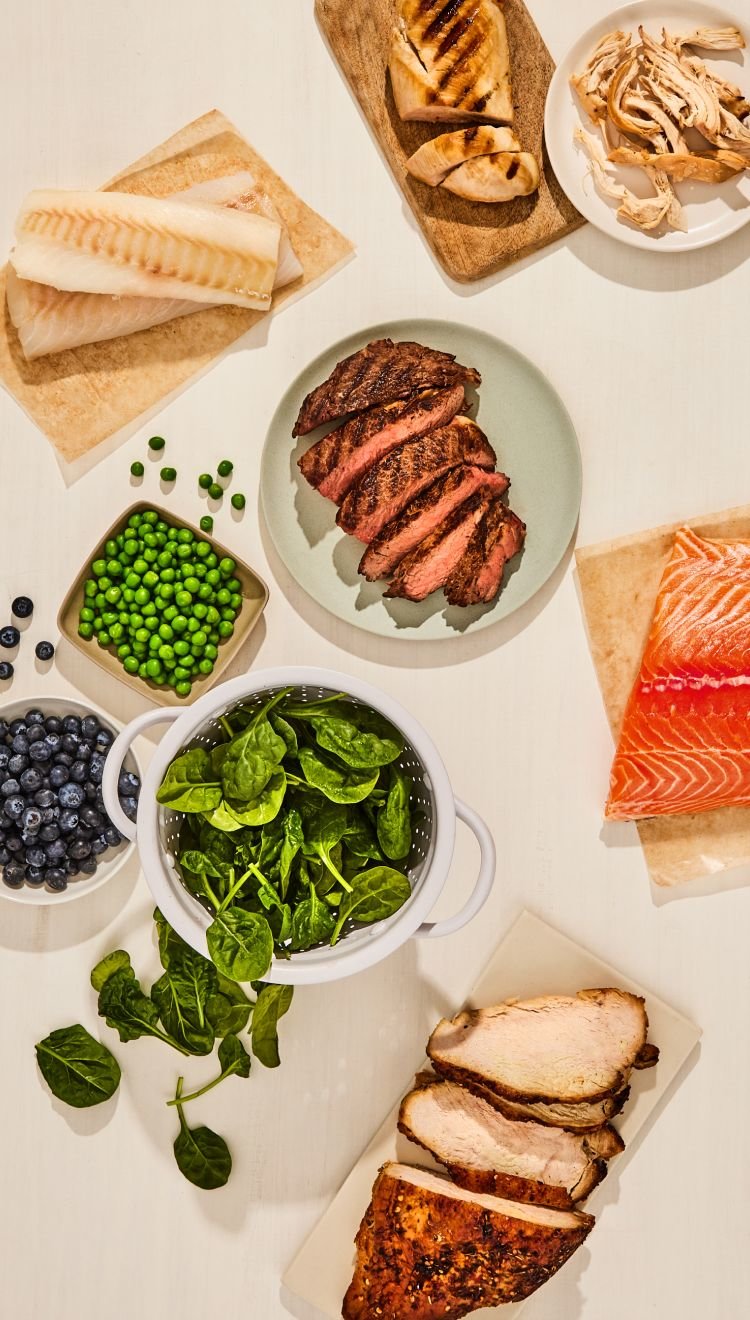
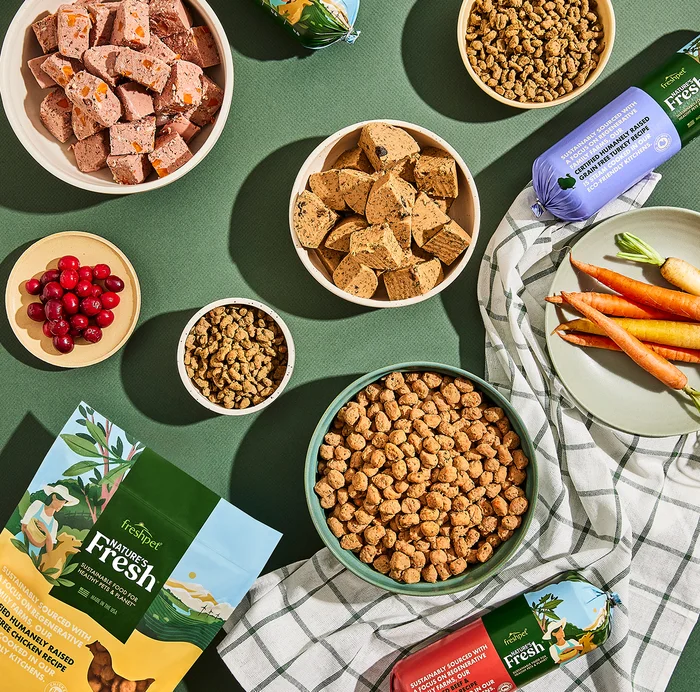
Nature’s Fresh®
We use humanely raised, vegetarian-fed, and GAP-rated chicken and turkey, and sustainably grown, antioxidant-rich spinach and carrots in our delicious recipes. Plus, they’re grass-fed beef.
we use up to 20X less packaging than other brands
This number is based on the amount of food it takes to feed a 30lb dog daily.
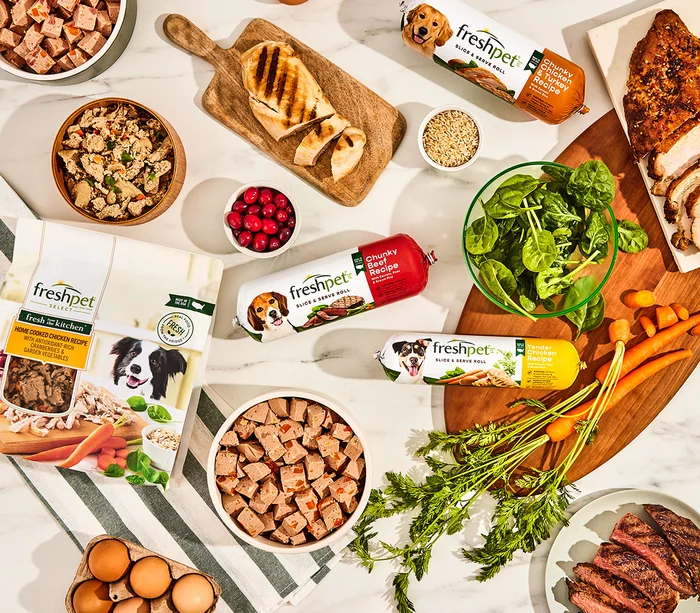
Freshpet: 2–10g
Freshpet’s packaging is strong, light, and efficient requiring only 2–10g of packaging per 30lb dog per day.
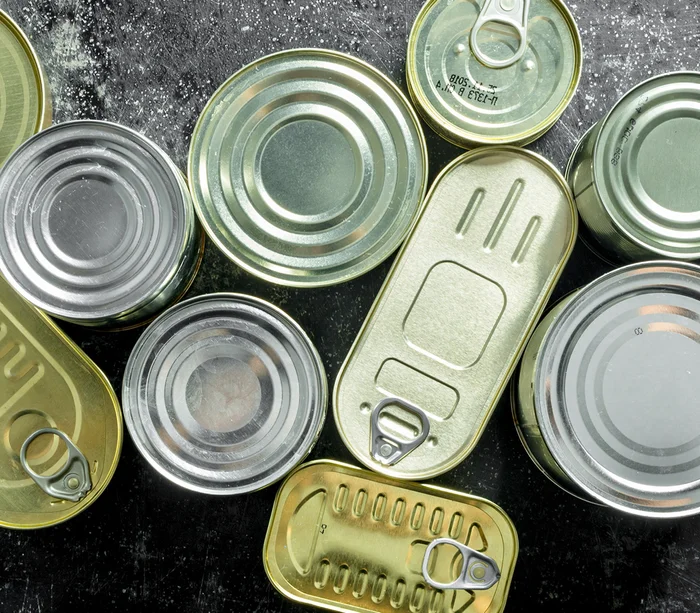
Wet Food Competitors: 80-120g
The wet food of other brands use between 80–120g of packaging per 30 lb dog per day. Typical wet food cans and plastic tubs require much more material to provide the same nutrition.
California Assembly Bill 1305 Supplemental Information
This disclosure supports statements made regarding Nature’s Fresh branded products being "Carbon Neutral". This disclosure is based on information available to Freshpet as of the posting date and may not reflect new or updated information that became available after such date. Freshpet will update this disclosure, including providing any missing information that was unavailable at the time of posting, annually in accordance with California Assembly Bill 1305.
As part of making a “Carbon Neutral” claim for its Nature’s Fresh brand, Freshpet works with the third-party carbon accounting firm 3Degrees to calculate the entire company’s Scope 1/2/3 carbon footprint in accordance with the guidelines of the Greenhouse Gas Protocol. After measuring the carbon footprint of the entire company, the estimated carbon footprint of the Nature’s Fresh brand is calculated based on its share of total company dollar sales. Nature’s Fresh’s estimated carbon footprint is then matched with carbon credits purchased from the projects shown below. Nature’s Fresh’s carbon credit partners were chosen because their innovative projects help mitigate carbon emissions in addition to protecting and restoring biodiversity, advancing social justice, improving water quality and supporting other Sustainable Development Goals. For the 2025 calendar year, Freshpet is planning to have its carbon footprint calculations verified by a 3rd party.
Chyulu Hills REDD+ Project
Identification Number: VCS1408
Project Type: REDD+ Reduced Emissions from Deforestation and Forest Degradation
Site Location: Makueni, Taita Taveta, and Kajiado Counties of Kenya
Protocol: VCS, VM009 with CCB
https://www.conservation.org/projects/restoration-in-kenyas-chyulu-hills
https://registry.verra.org/app/projectDetail/VCS/1408
Southern Cardamom REDD+ Project
Identification Number: VCS1748
Project Type: REDD+ Reduced Emissions from Deforestation and Forest Degradation
Site Location: Koh Kong Province, Cambodia
Protocol: VCS, VM009
https://registry.verra.org/app/projectDetail/VCS/1748
Posted 1/3/2025
















